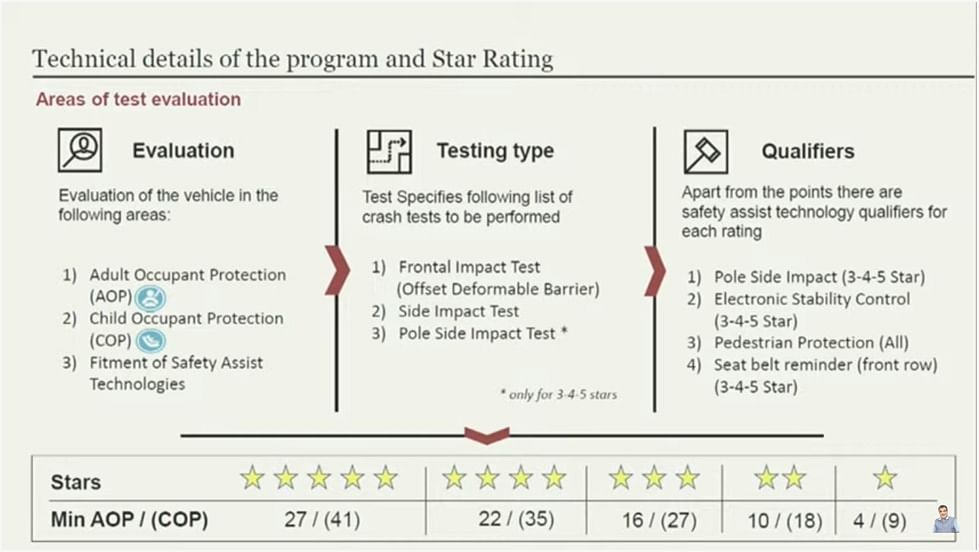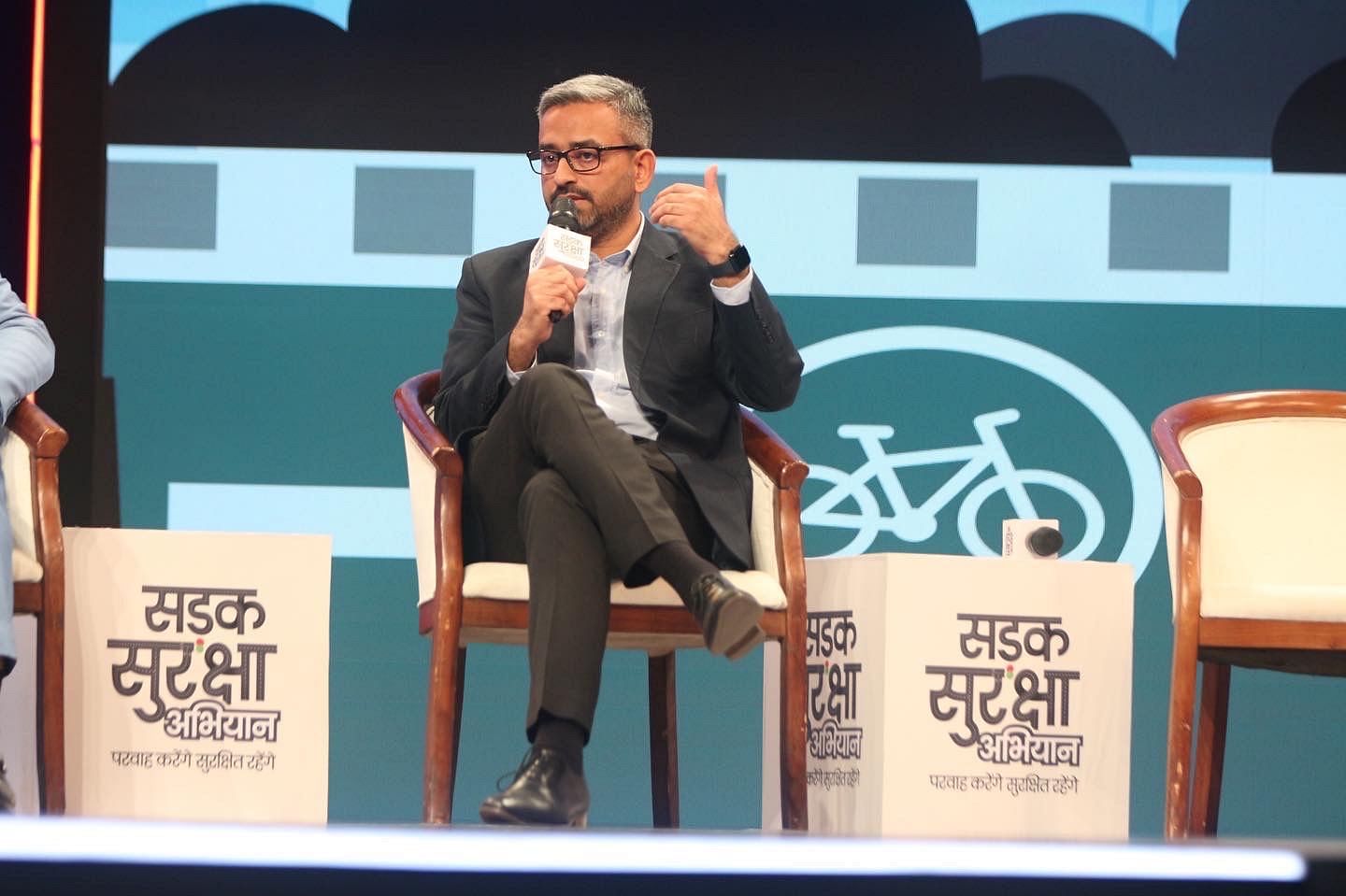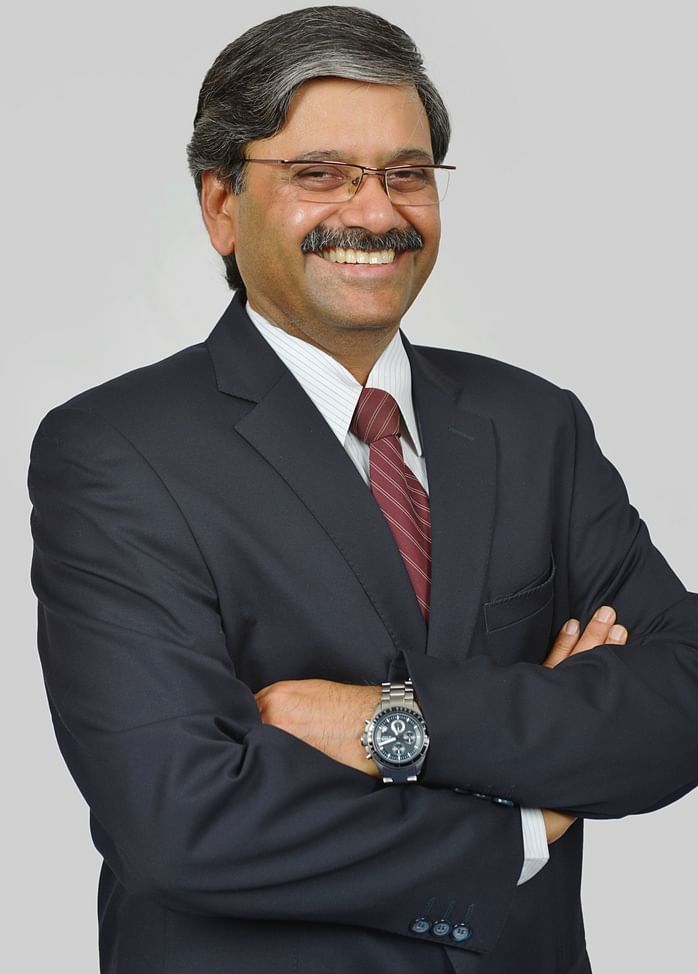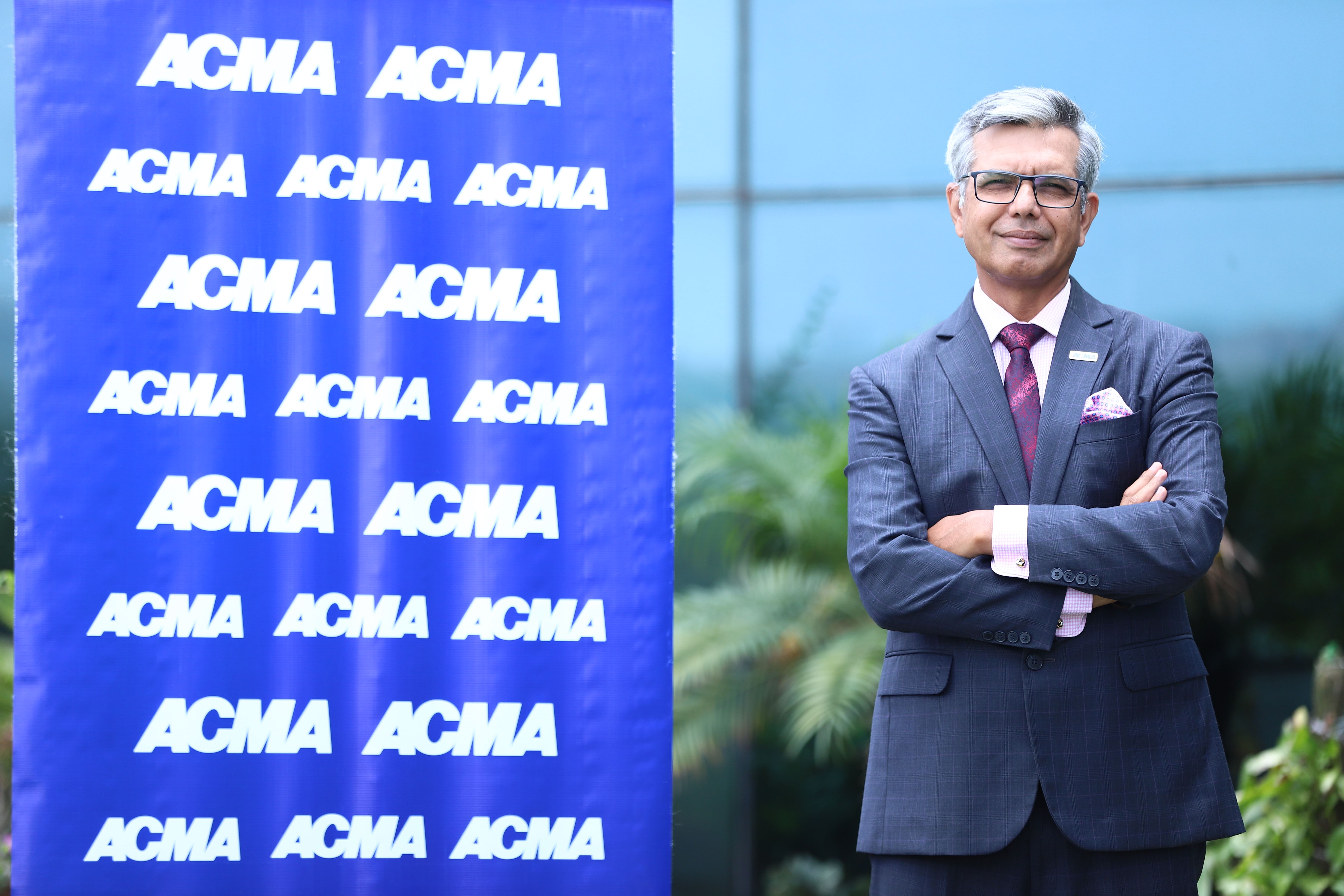'BNCAP will propel industry to march towards global standards': Nitin Gadkari
The BNCAP crash protocols - AIS-197 - will be voluntary for passenger vehicle OEMs to get their cars certified with star ratings based on performance in frontal-offset, side-impact, side-pole-impact crash tests, in line with global standards.
The Ministry of Road Transport and Highways (MoRTH) led by Nitin Gadkari, the Union Minister for Road Transport and Highways, introduced the long-awaited Bharat New Car Assessment Programme or BNCAP, at a mega launch event which saw the participation from leading industry dignitaries, and key stakeholders, in New Delhi today.
The BNCAP will be a voluntary programme and invite vehicle OEMs to get their cars tested and certified for star ratings based on performance in frontal, offset, and side-impact crash tests. The formulated crash test standards - AIS-197 - will impart star ratings by considering the adult occupant protection (AOP) and child occupant protection (COP) performance of vehicles and are based on global standards, taking references from international protocols such as the Global New Car Assessment Programme (GNCAP).
In line with the revised GNCAP standard, the BNCAP protocol will test cars for the frontal-offset crash at a speed of 64kph, perform a side-impact test at a speed of 50kph, and specifically undertake a side-pole-impact crash test at 29kph, particularly to impart a 3/4/5-star rating to cars.

The BNCAP protocol will evaluate vehicles on their adult- and child-protection performance under a crash and award stars out of five to enable consumers make an informed decision when buying a new car. The frontal-offset crash test will be conducted at a speed of 64kph.
While the BNCAP journey began in 2011, it remained at a slow pace. However, it gained momentum in 2016 when the government decided to raise the safety standards for the benefit of the industry by unlocking export opportunities, as well as in the interest of the consumers, and all stakeholders.
The BNCAP will be implemented from October 1, 2023, and will be anchored by the Pune-based Central Institute of Road Transport (CIRT), which will invite OEMs to volunteer cars for crash tests. A random selection process will see the BNCAP committee pick the base variant of a model to undertake a crash test. ARAI in Pune, ICAT in Manesar, and GARC in Chennai, are the three test agencies that have been given the mandate to undertake crash tests and evaluate results for imparting the BNCAP star ratings.
According to Nitin Gadkari, Union Minister for Road Transport and Highways, "Today is an important day in the history of the Indian automobile industry, with whose collaboration we are introducing the BNCAP regime. With suggestions from all stakeholders, the programme has been structured in a systematic way that has been accepted by all. While the cost of testing at a global centre is Rs 2.5 crore, the BNCAP test cost for a car is pegged at Rs 60 lakh. It opens opportunities for independent testing and homologation bodies - ARAI, ICAT and GARC to offer time-bound, and transparent testing and crash results."
"The BNCAP is India's own crash testing programme, based on global standards, and it will propel the industry to march towards global standards, and opens huge opportunity for exporting high-quality, made-in-India cars. Most importantly, it will help the Indian consumer make an informed decision when buying a new car, he added.
According to Vinod Aggarwal, President, SIAM, said, "In India, we have already adopted stringent crash safety norms along with providing basic safety features such as dual airbags, ABS, rear parking sensors, among others. As India is an integral part of the UN's accord of reducing global road accidents by 50 percent of the fatalities from 2020, the Indian automobile industry will closely work with the government of India to achieve this target. We will focus on the four 'Es' of road safety. In this context, the BNCAP is a timely effort, and will go a long way in making consumers make informed decisions while purchasing a vehicle. It will also help customers compare the safety ratings of different products, and choose the appropriate product.

Vinod Aggarwal, President, Society of Indian Automobile Manufacturers: "The BNCAP is a timely effort, and will go a long way in making consumers make informed decisions while purchasing a vehicle. It will also help customers compare the safety ratings of different products, and choose the appropriate product."
"The BNCAP is at par with global standards, and therefore, it will help the market forces to push the vehicle manufacturers to bring safer vehicles in the domestic market, in alignment of global standards," Agarwal said.
According to Vinnie Mehta, Director General of the Automotive Component Manufacturers Association of India, "In some ways the BNCAP is better than several protocols implemented globally, it was long overdue, and we believe it will serve as the catalyst for globally harmonised and competitive automotive market in India. It will also lead to rapid adoption of safety technologies in vehicles.
Vinnie Mehta, Director General, Automotive Component Manufacturers Association of India: "BNCAP will serve as the catalyst for globally harmonised and competitive automotive market in India."
"Integration of safety features will lead to more investments in the components industry, and increased opportunity for suppliers engaged in the manufacturing of electronics-based advanced automotive components. It will also lead to better export opportunities for the Indian Auto Components industry, and these standards should help the industry to expand their reach to more global markets. It will also invite more investments in R&D to develop new technologies. The responsibility now lies with the industry to ensure a safer transportation ecosystem," Mehta said.
According to Saurabh Dalela, Director, ICAT, "The introduction of BNCAP entails to the broader subject of road safety in India. At ICAT, we are ready to do all the three tests defined in the standard."
Saurabh Dalela, Director, International Centre for Automotive Technology: "The introduction of BNCAP entails to the broader subject of road safety in India. At ICAT, we are ready to do all the three tests defined in the standard."
"But, BNCAP is beyond capabilities of test agencies, it is the first step towards ensuring safety from the product standpoint. This is welcome step and we are proud that India has taken this step, which has also opened the opportunities for exports," Dalela added.
Piyush Tewari, Founder and CEO, SaveLIFE Foundation, "We wholeheartedly welcome this initiative that is set to propel road safety in India. As references, countries like the US have registered a remarkable drop in road fatalities with the introduction of stringent vehicle safety standards. We expect the same to happen in India with the implementation of the BNCAP."

Piyush Tewari, Founder and CEO, SaveLIFE Foundation: "BNCAP will augment structural integrity of cars and play a significant role in the decision-making process of the Indian consumers."
"Passenger compartment intrusion and seat deformations are the leading causes of fatalities in road accidents. BNCAP will augment structural integrity of cars and play a significant role in the decision-making process of the Indian consumers," added Tewari.
According to CV Raman, CTO, Maruti Suzuki India, "It is a welcome step and we are proud as we had been working along with the government and test agencies in the discussions around formulation of the standards."

CV Raman, CTO, Maruti Suzuki India, "We will be volunteering to get our cars tested under the BNCAP standards, which are same as the revised GNCAP protocols. Like all NCAPs around the world, the BNCAP standards are a level hgiher than the regulations."
"We will be volunteering to get our cars tested under the BNCAP standards, which are same as the revised GNCAP protocols. Like all NCAPs, the BNCAP standards are a level higher than the regulations which presently require cars to be tested at 56kph for frontal crash," Raman said.
Petr Solc, Brand Director at Skoda Auto India said, "We appreciate that the Indian Government is putting greater emphasis on safety regulations and policies that improve car safety. The introduction of BNCAP is a step in the right direction. Safety is an important aspect and active and passive safety features, along with the structure of the car, keeps the driver and their familly safe. Skoda is a family brand, and safety of all customers is our priority. Skoda will continue focusing on safety to further grow the brand in the Indian market."
RELATED ARTICLES
Motherson and Marelli Inaugurate Automotive Lighting Plant in Sanand
The facility is the first in India capable of manufacturing edge-to-edge single-piece long lighting parts.
Nissan Motor India Offers 5.55% ROI Finance on Magnite Until March 2026
Scheme through NRFSI covers up to 100% on-road funding with loan tenures of up to seven years.
BorgWarner Secures European OEM Contract for Hybrid Range-Extended Vehicle Drive Module
The automotive supplier will deliver an 800V Integrated Drive Module combining generator and propulsion functions into a...






 22 Aug 2023
22 Aug 2023
 9807 Views
9807 Views







 Shruti Shiraguppi
Shruti Shiraguppi



 Sarthak Mahajan
Sarthak Mahajan

